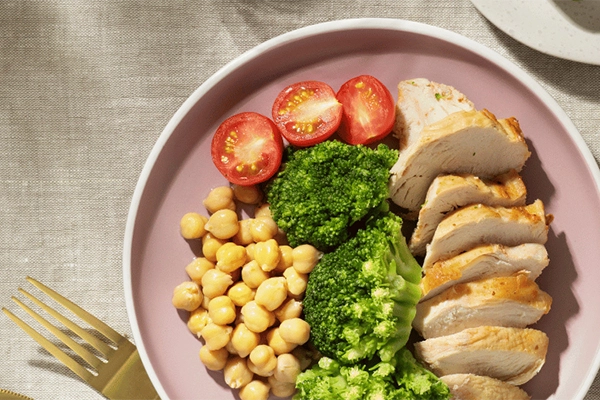Topics
Pregnancy is a wonderful and exciting experience! From receiving a positive pregnancy test result to going for your first ultrasound, hearing your baby’s heartbeat for the first time, and witnessing your abdomen growing bigger day by day—this journey is truly life-changing.
In the era of abundant online information on dietary recommendations, along with the well-intentioned advice by experienced friends and family members, it is entirely understandable to feel inundated.
In this article, we are going to share with you some dietary guidelines for pregnant mothers to aid you through this transformative phase of motherhood.
Why should I eat well?
As a pregnant mother, you should prioritise a comprehensive and balanced nutritional intake for your maternal well-being and to ensure optimal foetal development.
By diligently incorporating a variety of essential nutrients, vitamins, and minerals into your daily meals, you are establishing a strong foundation for both your personal health and the growth of your baby. This approach also helps protecting your baby from the risk of potential deficiencies.
How much weight should I be gaining?
During pregnancy, an average mother typically gains about 11-15kg, usually after the 20-week mark of gestation. Your energy requirement also increases during the second and third trimesters of pregnancy.
Here’s a general guideline provided by Malaysian health authorities:
Pre-pregnancy body weight status | Body Mass Index (BMI) | Recommended weight gain (kg) |
Underweight | < 18.5 kg/m2 | 12.5-18.0 |
Normal weight | 18.5-24.9 kg/m2 | 11.5-16.0 |
Overweight | 25-29.9 kg/m2 | 7.0-11.5 |
Obese | ≥ 30 kg/m2 | 5.0-9.0 |
Do speak to your doctor about how much weight you should or should not gain during your pregnancy.
What types of food should I eat?
In general, pregnant mothers should choose foods that are high in calcium, iron, vitamin A, vitamin B, vitamin C, vitamin D and folic acid.
Your doctor might advise you to take folic acid and iron supplements to complement your daily needs.
- Carbohydrates
- 7 servings of carbohydrates.
- Provide calories to support your energy requirements in pregnancy.
- Healthy sources of carbohydrates include brown bread or rice, quinoa, legumes, and oats.
- Limit intake of highly processed and refined carbs such as white bread, pasta, and pastries.
- Vegetables & fruits
- 3 servings of vegetables, 2 servings of fruits.
- Provide dietary fibre (packed with micronutrients), vitamins, and minerals for foetal development.
- Prevent constipation, reduce the risk of preeclampsia (high blood pressure), and gestational diabetes.
- Citrus fruits like oranges may help combat nausea.
- Dairy products
- 2 servingsof dairy products.
- Opt for low fat milk, cheese, yogurt.
- Provide calcium to develop your baby’s teeth, bones, heart, muscle, and nervous system.
- Lean protein
- 1 serving of fish, 1 serving of lean meat / poultry,1 serving of legumes.
- Protein is important for adequate growth and development of your baby, especially the brain. It aids in increasing blood supply to your baby and prepares your body for lactation.
- Good protein sources are lean meat, chicken without skin, pasteurised eggs, salmon, nuts, and beans.
- If you are a vegetarian, ensure that you eat a wide variety of plant-based proteins to get all the protein requirements and essential amino acids.
- Protein intake should increase with each trimester of your pregnancy, ranging from 3.5 to 7 servings per day.
- Hydration
- Drink 6-8 glasses of water every day.
- If you love coffee, be mindful of your caffeine intake. You will need to lower your caffeine intake to one cup a day or switch to decaf altogether.
What types of food should I avoid during pregnancy?
- Highly processed foods which are rich in saturated fat, added sugar, or sodium
- Alcohol
- Caffeine
- Raw meat or seafood like sashimi
- Uncooked processed meats
- Unpasteurised dairy products
- Spicy foods
- Fried fatty foods
Book an appointment at Pantai Hospitals
Each pregnancy is unique. Regular prenatal appointments and open communication with your doctor are crucial for monitoring your health and addressing any concerns throughout pregnancy.
A dedicated and expert team of obstetricians and gynaecologists at Pantai Hospital is available for consultation to provide patients with the best care and assistance. Get in touch with us to book an appointment today if you have any concerns or questions about your nutritional intake during pregnancy.
Pantai Hospital has been accredited by the Malaysian Society for Quality in Health (MSQH) for its commitment to patient safety and service quality.













